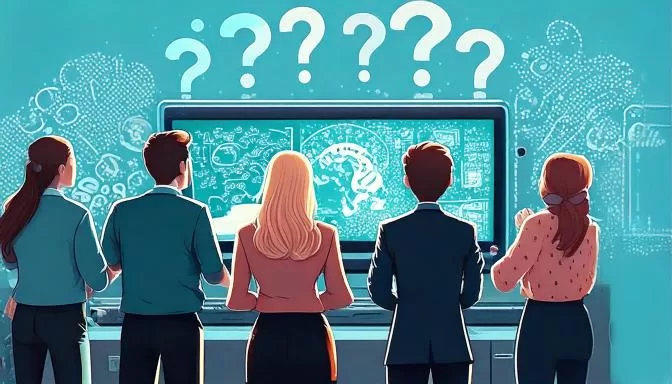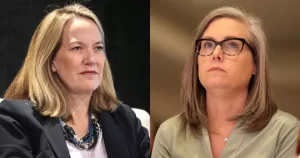The Smith-Mundt Modernization Act: A History, Pros, and the Every Black Life Matters Perspective on Propaganda in America
In today’s rapidly evolving information landscape, the Smith-Mundt Modernization Act of 2013 remains a pivotal yet controversial turning point in U.S. media policy. Initially designed as a diplomatic tool for foreign audiences, the act’s amendment allowed U.S. government-produced media to be accessed domestically, a move that sparked significant concern about propaganda reaching American citizens. Every Black Life Matters (EBLM) holds a firm stance on this issue, urging transparency, accountability, and an unwavering commitment to the public’s right to truth. EBLM’s own Dr. Kevin McGary delves into these concerns in his latest book, Revealed, shedding light on the potential risks and calling for ethical standards in government communication. Here, we explore the history, some of the perceived benefits, and EBLM’s rigorous critique of the Smith-Mundt Modernization Act.
A Brief History of the Smith-Mundt Act
The Smith-Mundt Act, officially known as the U.S. Information and Educational Exchange Act of 1948, was initially established to promote American values and counter foreign propaganda during the Cold War. Signed into law by President Harry S. Truman, it authorized the government to create media that would portray America positively to foreign audiences, combating the Communist messaging of the Soviet Union. Central to the act was a ban on the domestic dissemination of such media; the goal was to protect American citizens from exposure to government-crafted narratives designed for foreign audiences. This restriction ensured that the U.S. government did not influence domestic opinion, aligning with the First Amendment’s emphasis on free speech and a free press.
However, the information age and the internet dramatically reshaped the media landscape. By the early 2000s, it became almost impossible to restrict government-produced foreign media from reaching American viewers due to digital access. Consequently, in 2013, under President Barack Obama, the Smith-Mundt Modernization Act was passed, allowing U.S.-funded broadcasters like Voice of America (VOA) to be accessible to Americans. Proponents argued that this modernization would allow for greater transparency and enable the public to see government efforts abroad firsthand.
Potential Benefits of the Smith-Mundt Modernization Act
For its supporters, the modernization act has several perceived benefits:
- Increased Transparency: Proponents argue that by lifting the domestic ban, the U.S. government is being more open with its citizens. Instead of only foreign audiences accessing taxpayer-funded content, Americans can also view what their government produces and broadcasts internationally. Supporters claim this change promotes transparency by making government activities accessible to all.
- Counteracting Disinformation: In an age of global disinformation, particularly with foreign actors aiming to influence American sentiment, the act is seen as a tool to allow the government to provide verified information to the public. By giving Americans access to programs intended to counteract harmful narratives abroad, supporters believe this amendment helps maintain informed public discourse.
- Strengthened Public Diplomacy Efforts: Supporters contend that the act allows for a more cohesive U.S. image. In cases where international broadcasts address global issues (such as public health or human rights), having Americans view the same content could align domestic and international perspectives on U.S. policies.
While these arguments have some merit, EBLM contends that these “benefits” can quickly devolve into risks for the public and especially marginalized communities. The organization raises important questions about who controls these narratives and to what end, concerns that are further addressed in Dr. McGary’s book Revealed: The Archetypes of American Politics… .
Every Black Life Matters (EBLM) Perspective: The Risks of the Smith-Mundt Modernization Act
Every Black Life Matters firmly believes that transparency in government communication is essential to a healthy democracy. However, EBLM also recognizes the significant risks associated with the Smith-Mundt Modernization Act, especially when applied without rigorous safeguards.
- Erosion of Trust in Independent Media: EBLM is concerned that this amendment might dilute the independence of media by allowing government-produced content to appear as neutral information. Communities that already face misrepresentation in mainstream media, such as Black Americans, risk seeing their narratives influenced by government-led agendas. When government messages are delivered as “news” or as part of public discourse, it can blur the lines between objective journalism and politically motivated storytelling.
- Propaganda and Community Trust: One of the original act’s core principles was to protect U.S. citizens from government propaganda. By dismantling this safeguard, EBLM warns that the government could subtly shape public sentiment on domestic issues under the guise of foreign policy, potentially distracting from real community concerns. Given that Black and underserved communities have historically been targeted by biased policies and misrepresented by the media, EBLM views this modernization as a troubling regression that risks reinforcing damaging stereotypes or deflecting attention from grassroots issues.
- Selective Narratives and Hidden Agendas: The Smith-Mundt Modernization Act gives the government more room to selectively amplify certain narratives, presenting only favorable views of U.S. policies while minimizing dissenting perspectives. EBLM stresses that the government should not manipulate public opinion on crucial issues like criminal justice reform, economic inequality, or racial disparities. Every Black Life Matters champions a narrative centered on genuine, community-driven stories, not those crafted to align with specific political objectives.
- Undermining Democratic Discourse: EBLM believes that informed public debate is the bedrock of democracy. However, the Smith-Mundt Modernization Act could suppress this by making government-approved narratives more accessible than independent or community-focused media. For communities striving for equitable representation, government-crafted narratives could overshadow voices calling for reform and justice. EBLM advocates for robust public debate, free from government influence, as a way to honor diverse viewpoints and encourage genuine progress.
- Risk of Tyranny and Control: Finally, EBLM raises a critical concern that excessive control over public information is a step toward tyranny, as Dr. McGary explores in Revealed. When the government has the power to shape domestic narratives, it risks undermining the public’s ability to think critically about its leaders’ policies. EBLM sees this as especially dangerous for Black communities, who have fought hard for their voices to be heard independently of government or media bias.
The Call for Safeguards and Accountability
To address these risks, EBLM advocates for the following safeguards:
- Clear Labeling and Attribution: Any government-produced content made available to the American public should be explicitly labeled, ensuring citizens know the source and can critically evaluate its intentions.
- Public Oversight Committees: Independent oversight committees, representing diverse communities, should monitor the distribution of government-produced media to prevent misuse and protect the integrity of public discourse.
- Support for Independent Media: To counterbalance government narratives, EBLM encourages greater support for independent and community media, especially those representing marginalized voices. These outlets ensure that the stories and issues that matter most to everyday Americans aren’t overshadowed by government messaging.
In summary, while the Smith-Mundt Modernization Act may have been passed with intentions of transparency and efficiency, Every Black Life Matters sees it as a risky shift that must be critically examined. Without proper safeguards, this amendment could undermine the independence of media, misrepresent marginalized communities, and erode public trust. As Dr. Kevin McGary discusses in Revealed, EBLM is committed to preserving the right to authentic, community-centered information and resisting any encroachment on free, unbiased public discourse
#FreedomOfInformation #SmithMundt #ModernizationAct #FakeNews #GovernmentMedia #CuratedNarratives #MediaTransparency #SelectiveFraming #PublicPerception #InformationControl #NarrativeShaping #MisinformationRisks #ObjectiveJournalism #CensorshipConcerns #MediaIntegrity #ControlledNarratives #CriticalThinking #MediaLiteracy #GovernmentTransparency #PublicOpinion #InformedCitizenry #FactVsFiction #RealNewsvsFakeNews #MediaEthics #TrustInMedia #InformationWar #FreedomOfPress #AccountabilityInMedia #JournalisticIntegrity #NationalSecurityNarratives #CivicEngagement









